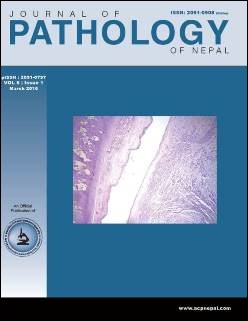Significance of nucleic acid testing in window period donations: Revisiting transfusion safety in high prevalence-low resource settings
DOI:
https://doi.org/10.3126/jpn.v6i11.15649Keywords:
HIV, Hepatitis B Surface Antigen, Hepatitis C Virus, ELISA, Nucleic Acid Amplification Testing, NATAbstract
Background: Safe blood transfusion to the people is essential requirement of health care delivery system. Despite the mandatory screening of blood with newest, very sensitive serological test, considerable risk remains for transfusion transmission of virus due to window period infections.
Study was aimed to analyze the efficacy of Mini pool Nucleic Acid Amplification Testing as additional donor screening program and its role in improving blood safety in the high prevalence population.
Material and Methods: Study was performed at a tertiary-care, accreditated hospital from June 2013 to December 2015 All negative cases for anti-HIV, anti-HCV and HBsAg by ELISA were subjected to MP-NAT to detect HIV-1, HIV-2 and HCV-RNA with HBV DNA.
Results: In 31 months, 20470 donations were received of which whole blood donations were 16997 (83.03%) and 3473 (16.97%) apheresis. Out of 16997 donations, 446 (2.61%) were seroreactive. Out of 16551 sero-negative donors subjected to MP-NAT testing, 17 (0.10%) were NAT reactive (NAT yield -1 in 974). Out of 17 cases, 12 were HBV (1 in 1379), four HCV (1 in 4138) and one HIV NAT reactive (1 in 16551).
Conclusion: NAT has improvised the blood safety by detecting the virus in the pre-seroconversion, window period thereby providing much higher sensitivity as compared to newest generation serological tests. In countries with high incidence of infection with significant number of window period donations, NAT can serve as a valuable tool along with other serological testing in high prevalence, resource constrained countries to achieve the goal of zero risk of blood.
Downloads
Downloads
Published
How to Cite
Issue
Section
License
This license enables reusers to distribute, remix, adapt, and build upon the material in any medium or format, so long as attribution is given to the creator. The license allows for commercial use.




